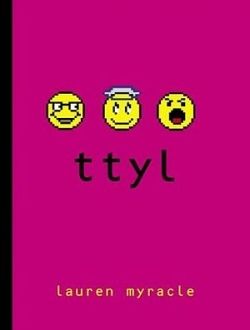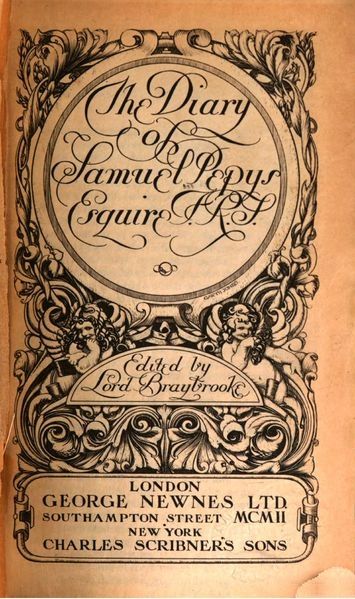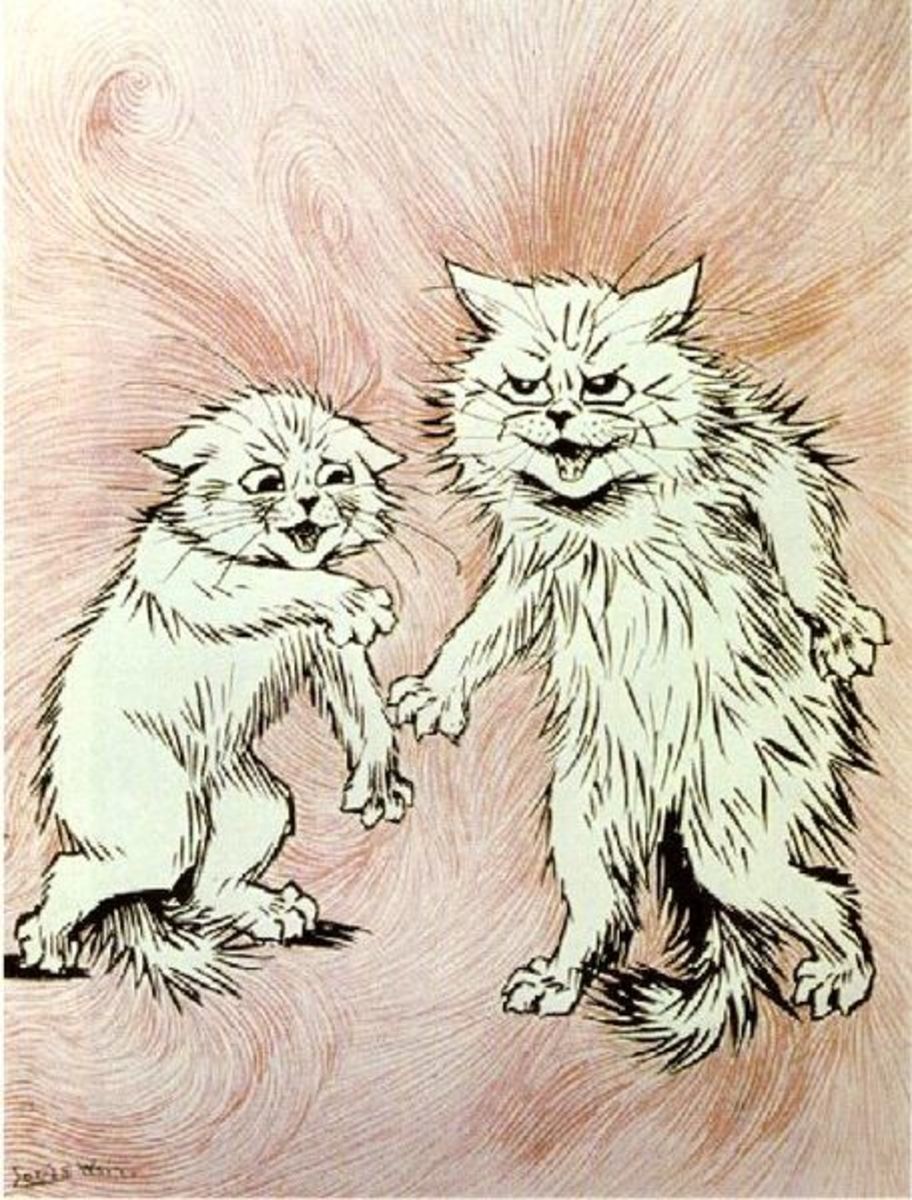Diaries, Letters and Journals

What are Epistolary Books?
Epistolary books are books written in the format of Letters, Journal and Diary Entries, Emails, Newspaper Clippings and such like. They are not just straight prose (or straight storytelling) like most regular novels are.
The most famous epistolary books using the Letters format are 84 Charing Cross Road and The Guernsey Literary and Potato Peel Pie Society
The most famous epistolary books using the Diary format are The Diary of Anne Frank and Bram Stoker's Dracula
The most famous epistolary book on the market today (2012) using the EMAIL format is TTYL which is chat speak for Talk To You Later.
Image Source - Wikipedia
My Journey with Epistolary Books

I personally kept a diary for 20 years myself, although it was not a diary where I wrote out long pages. They were 5 year diaries - and I had 4 of them (well I did but the first one seems to have gotten lost) - and I only had a small space for each year to write a few lines. So 4 diaries times 5 years = 20 years. I started writing when I was 15 and stopped when I was 35.
I stopped because I met a man, got married and moved to a foreign country. I have never touched or written any kind of diary since, although some parts of my life do end up on my blogs and in my lenses.
I have also collected newspaper clippings of subjects that interested me - and I was a reader for a newspaper clippings business for several years as well. So you can see why epistolary books hold so much fascination for me.
As I am researching and writing this lens, I am coming across more and more books out there (some of which I have read) that are written in epistolary format. There are hundreds of them out there.
One such famous book is Samuel Pepy's Diary. Well actually I have never read Samuel Pepy's Diary. The language doesn't do much for me.
But I am interested in reading it because Helene Hanff was familiar with it. In her last book - Q's Legacy (my most favourite of all her books) - Ms Hanff mentions a series of History books she was writing for young American students (middle school age). At that time she was writing about Pocohantas and John Smith and had came across a mention of an investor named G Carteret. It took her a few days until her mind eventually figured out where she had read that name before. In Samuel Pepy's diary where he writes - Dined with G Carteret.
Its these types of connections that make history alive and much more interesting. Samuel Pepy's kept his diary for more than 10 years during the 1660s and 1670s. He lived in London and was there to see the great Fire of London when London City burned in 1666.
Image Source - Wikipedia

Other Epistolary books
I don't know why people insist on calling Sense and Sensibility an epistolary book. There is nothing in any e-book version I read that indicates anything about it being in a diary or a letters format. It looks like prose to me.
The Historian by Elizabeth Kostova was a brilliant book. I purchased a copy of The Historian in 2006 only because everyone was raving about it. But then I didn't read it because I thought it might be boring. I have no idea why I thought that. So this book sat on my shelf for at least 4 or 5 years. When I finally did read it, I thought it was wonderful. I cannot wait to see this book made into a movie.
I also have a copy of The Nuremberg Diary by G M Gilbert. Gilbert was an American psychologist assigned to the captured Nazi leaders who were standing trial at Nuremberg in 1945 and 1946 immediately after the end of World War 2. He kept a diary which was first published in 1947. I guess my copy is most likely a first edition then.
I have never heard of this book - Yes, I Would Love Another Glass of Tea - before today, but it looks good. I must look for it at the Library. I have heard of tea being drunk between strangers in the middle east - and the act of drinking tea together makes you friends. This knowledge comes from Greg Mortenson's book - Three Cups of Tea.
This book - Yes, I Would Love Another Glass of Tea - consists of letters written by the author Katharine Branning (who has lived and travelled in Turkey for 30 years) - in response to those letters written by Lady Mary Montagu who wrote 25 letters to her family and friends during the 17th century.
Other Epistolary books I have come across in my research.
The Diary of Samuel Pepys - set in London, England during the Great Fire of London (1666) - Non Fiction
Clarissa by Samuel Richardson, 1749 - Fictional novel
Dangerous Liaisons by Choderlos de Laclos, 1782 - Fictional novel
Dracula by Bram Stoker, 1897 - Fictional novel - Polylogic
The Color Purple by Alice Walker, 1983. Fictional Novel
The Perks of Being A Wallflower by Stephen Chbosky, 1999. - Fictional
Secret Diary of Adrian Mole (1980s) - Fictional - Monologic
Diary of a Wimpy Kid (2005) - Fictional - Monologic
Zlata's Diary (1991 - 1993) - Non fiction - Monologic
Freedom Writers Diary (1992) - Non Fiction - Polylogic
Other diaries that are mentioned (as titles of books) but are not written as Diaries, include the following books and movies -
The Princess Diaries by Meg Cabot - Fictional
The Grail Diary in the Movie Indiana Jones and the Last Crusade - Fictional
Bridget Jones Diary - Fictional
Image Source - Sarednab World Props
What kind of Epistolary Books do you like reading
The Diary of Anne Frank
The first epistolary book I remember reading was The Diary of Anne Frank. Like many of you, I had to read it for English class in High school. But did my English teacher tell me that it was an epistolary book? I am pretty sure she did NOT.
84 Charing Cross Road - Various scenes
The third epistolary book that I read was 84 Charing Cross Road and I LOVED this book. This one I can read it over and over again. It has become what the publishers call - a cult classic. And I absolutely adore the movie.
I have also read all of Helene Hanff's other books in that series. Out of the 6 popular books she wrote, so far I own 3 of them - 84 Charing Cross Road, The Duchess of Bloomsbury and Q's Legacy. I have also read Underfoot in Show Business, Letter from New York and Apple of my Eye. I just love her style of writing and her sense of humour. I prefer to write that same way myself - and it shows up here on Squidoo. . .
The black and white movie Helene is watching, (at 3 min 45 sec) is called "Brief Encounter"
Diary of a Wimpy Kid
Speaking of which we cannot forget the modern school diary version. Diary of a Wimpy Kid. My son loves these books.
There are 6 of them so far (not counting the movie and the DIY versions). So far we have 5 of the 6 books at home - all purported to be written by a boy named Greg in Middle School (Grade 6 to 8, aged 11 to 13). Greg is the middle of 3 sons in his family.
The only thing about these books that does not impress me is Greg's older brother, Roderick. He is in high school and the way he treats Greg is just shocking!!! These books have also been made into movies.
The Guernsey Literary and Potato Peel Pie Society
I am not a big fan of World War 1 and 2 books and movies, but this book is an exception. If they ever do make this book into a movie, I will be the first in line to see it!!! This book consists of a series of letters sent back and forth between Juliette in London and a gentleman on Guernsey island just after WW2.
Somehow some of the books from Juliette's personal Library have ended up on Guernsey Island and the man on Guernsey wants to know more. He used the address that Juliette had written inside the book. Eventually Juliette travels to Guernsey, meets the members of the Guernsey Literary and Potato Peel Pie Society and eventually falls in love and decides to stay on Guernsey.
The Technical details of an Epistolary Book
If you think you have seen something like the word Epistolary before then, then you are probably right.
Epistolary and Epistle both come from the Latin word - Epistola - which means a letter. And of course an Epistle is one of 22 letters in the New Testament in the Christian Bible. But Epistolary certainly does not or should not imply anything religious.
I didn't really learn what the word Epistolary meant until very recently - probably around 2010 - which is 2 years ago.
There are 3 different kinds of epistolary books - Monologic, Dialogic and Polylogic.
Mono means ONE
Dia usually means TWO
and Poly means MANY
So Monologic means from ONE persons point of view through the entire book - usually a Diary or Journal written in a diary format.
Dialogic is 2 people and almost always refers to letters being written back and forth to each other. Two good examples are Possession and 84 Charing Cross Road - mostly.
But when the Marks and Co shop staff start writing their letters back to Helene, the book becomes Polylogic which means many POV.





